The 10th Annual International Sniper Competition wrapped up Friday at Fort Benning, Ga., where 22 sniper teams from the U. S. Army, Air Force, Marine Corps and Coast Guard were joined by seven international sniper teams and three law enforcement teams to compete for the title as the best sniper team in the world.
Teams included members from the U.S. Army Special Operations Command, 10th Mountain Division, 75th Ranger Regiment, Army National Guard, 1st Marine Division, Pasadena Police Department, Spain, Germany, and Taiwan.
Army Sgt. Juan Valencia, sniper team leader, from the 1st Battalion, 73rd Cavalry (airborne reconnaissance) at Fort Bragg, N. C., was excited for the opportunity to prove his mettle against the best in the world.
"You are not considered the best unless you play with the best," said Valencia. "What better way to determine the best than an international competition."
Army Sgt. Johnel L. Pipkin, an infantryman with Headquarters, 1st Battalion, 15th Infantry, Fort Benning, agreed.
"To compete at this competition puts you among the best, and to go head to head with them is an honor," Pipkin said.
The competition started at one a.m. on Tuesday and continued for 72 continuous hours, the first time this competition has ever been conducted in that format, said Lt. Col. Jody Miller, commander, 2nd Battalion, 29th Infantry Regiment. Competitors were pushed to their limits with little sleep and some of the most challenging events a sniper could encounter.
The competition started with the Night Cold Bore followed by Night Range Estimation, Night Pistol, Day Movers, and Day Unknown Distance. Day two continued with Night Movers, Night Target Detection, Stress Shoot, Know Your Limits, and the .50 Cal. The third and final day's events were Night Unknown Distance, Live Fire Stalk, and One Shot.
Army Master Sgt. Mike Snyder, officer in charge of the U. S. Army Sniper School, said that although this is a competition, it is not just about announcing a winner.
"It is a competition, so we have to have a winner," he said. "But it is more about the training and the sharing of knowledge between our forces and our allies."
The knowledge being passed throughout the competition included events testing accuracy, endurance, target detection, and undetectable advancement toward a target. These are skills that snipers should already possess, according to Snyder.
U.S. Coast Guard Petty Officer 2nd Class Joshua J. Harris, aviation electronics technician, Coast Guard Air Station Elizabeth City, N.C., was glad to have the opportunity to learn from this competition.
"In every course of fire here, our training and tactics were tested and our weaknesses were exposed," Harris said. "This showed me where I need to work. In observing and talking to the other teams, like the Irish Defense Forces, Special Forces, and others, I learned a few new ideas and little tricks."
Pasadena Police Officer and former Marine, Brandon R. Largent, Pasadena SWAT, also felt this competition helped him identify places he could improve. "This competition has highlighted areas of weakness that I have never fully realized."
The overall winners were Sgt. 1st Class Edward Hoymeyer and Sgt. 1st Class Chance Giannelli from the Special Forces Sniper School and scored 1,258 points out of a possible 1,507. They were also the only team to receive a perfect score on the final event of the competition.
Other notable performances in the competition include the 82nd Airborne Team receiving a perfect score on the night range estimation event. The Marine team from the Scout Sniper Basic Course received first place in the night movement event by covering a little over four miles in less than 45 minutes and also a perfect score in the live fire stalk.
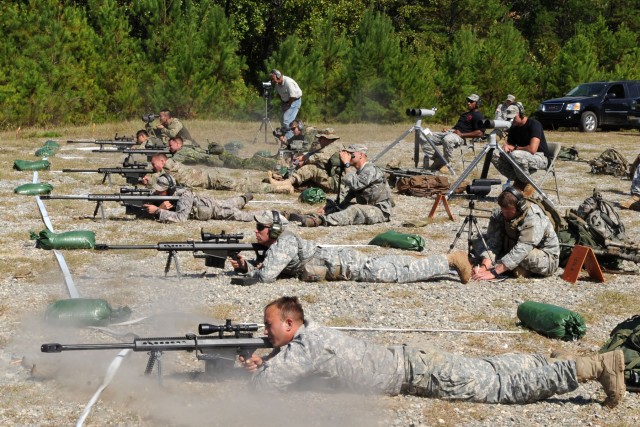
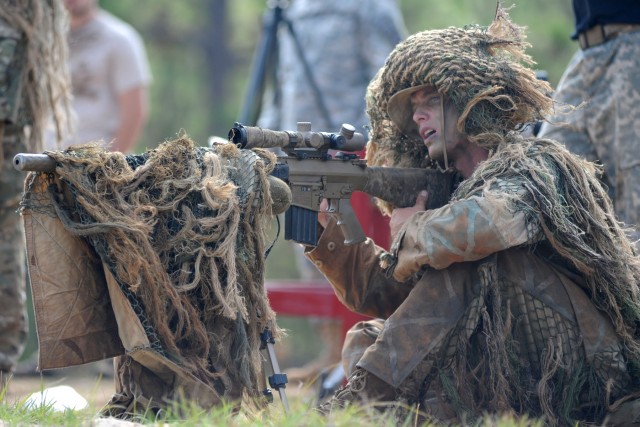
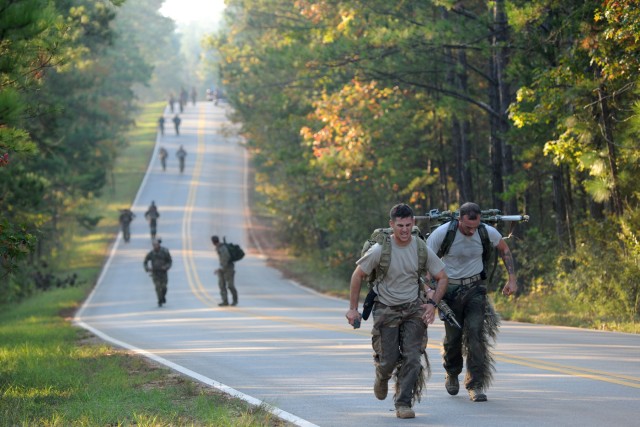

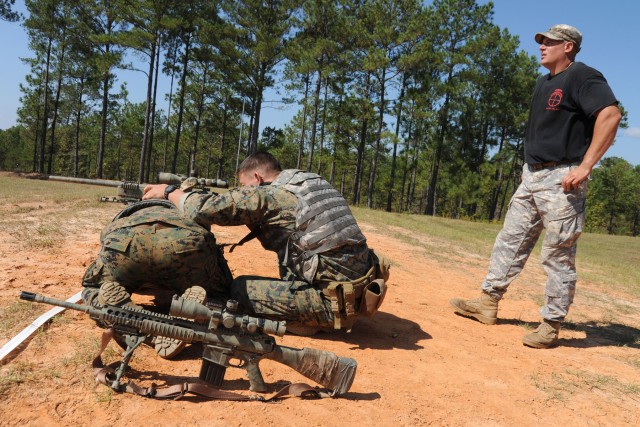
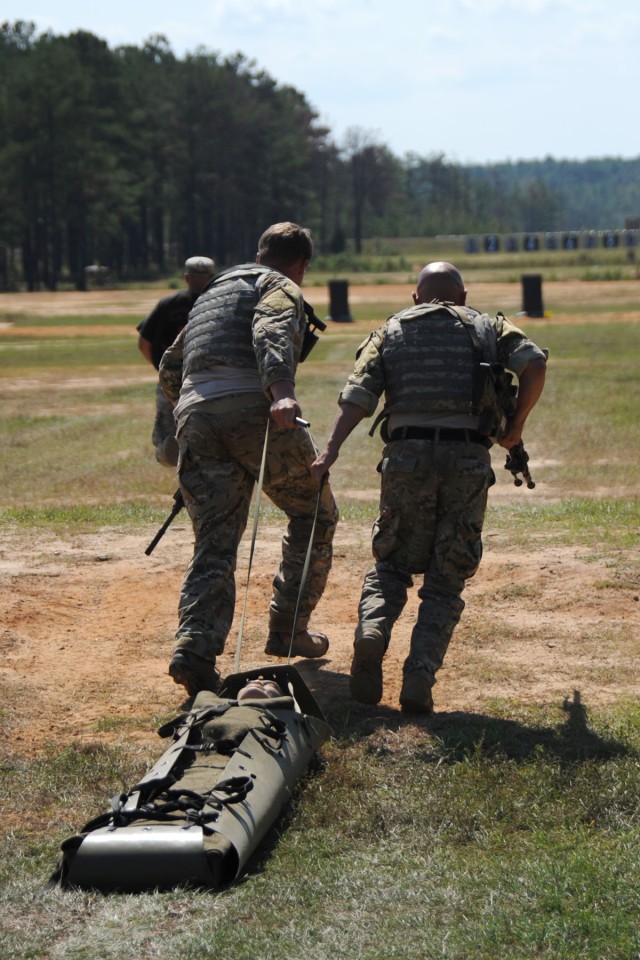
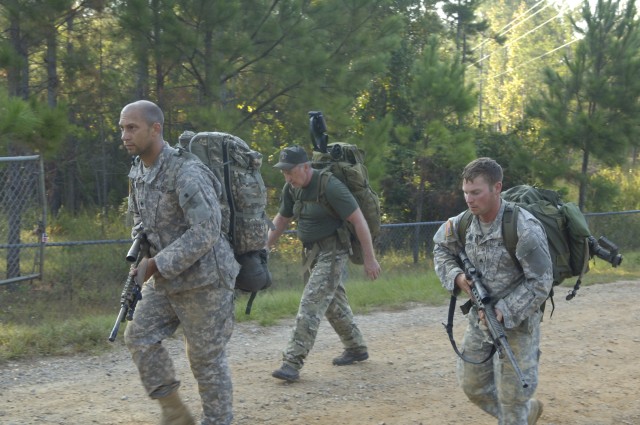
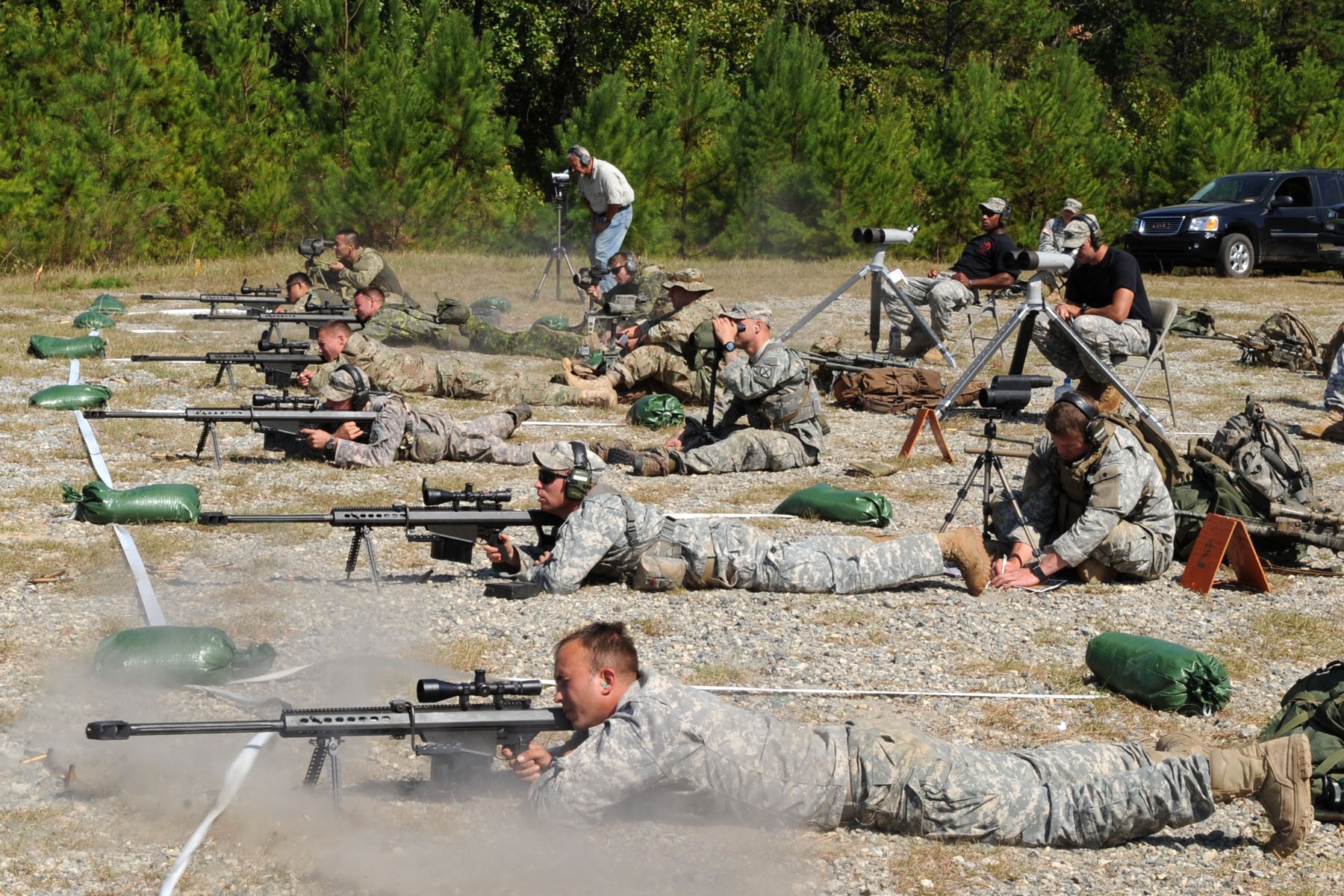
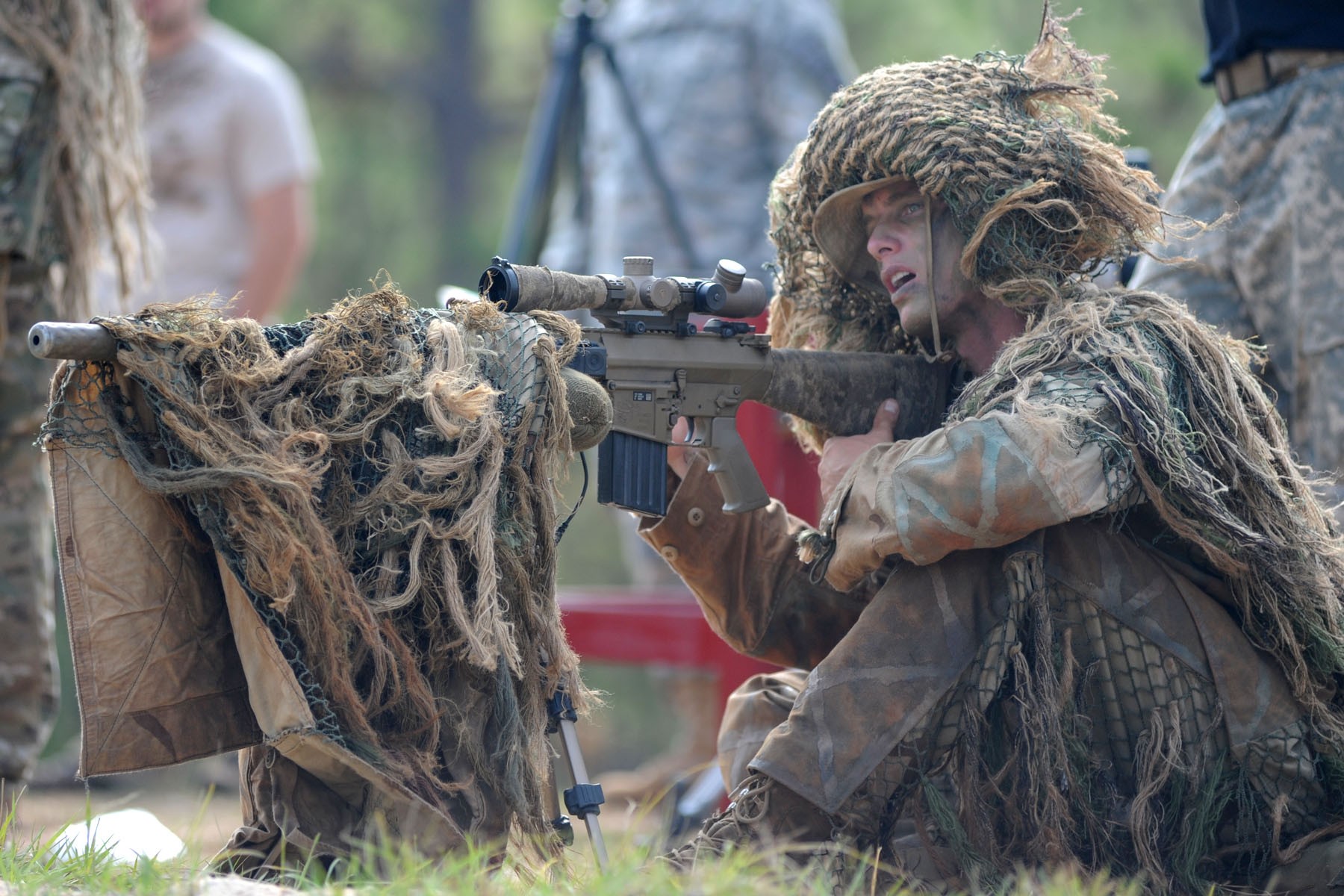



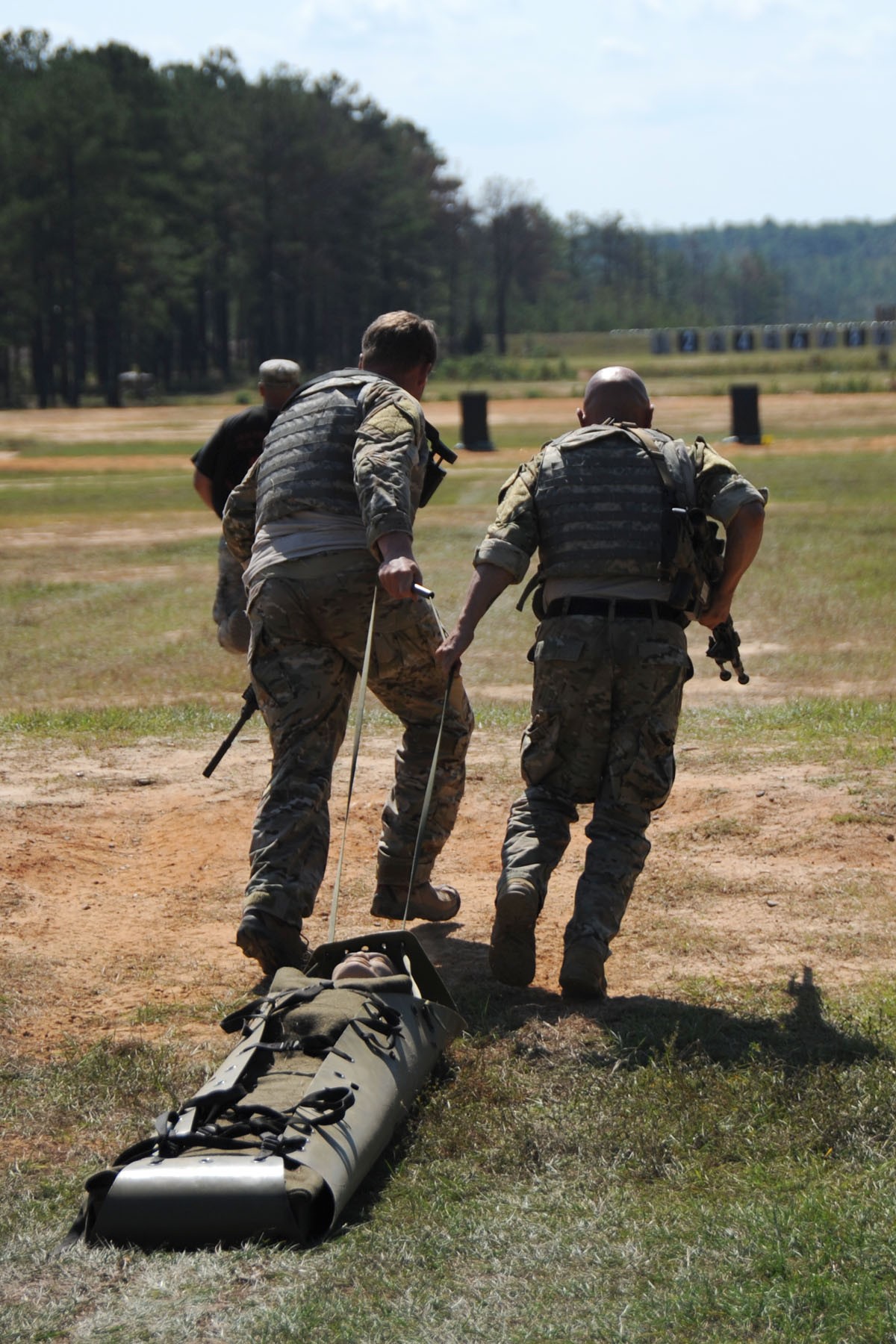

Social Sharing